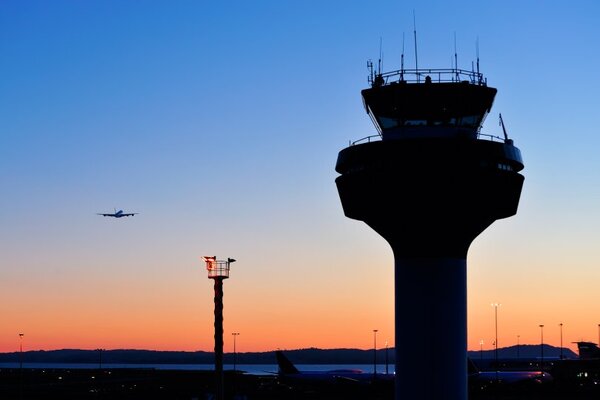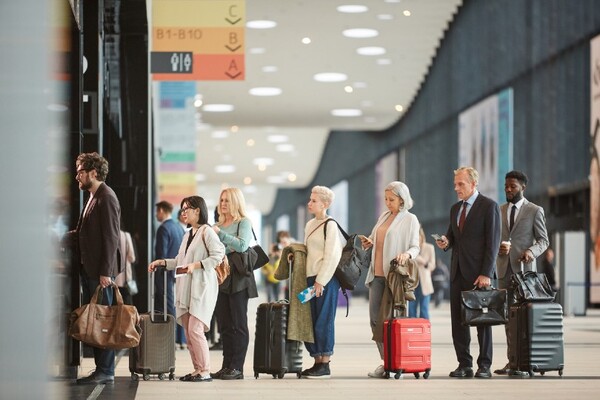Report lays bare 'up to' £165m cost to consumers and industry of 2023 ATC meltdown
 Gary Noakes
Gary NoakesThe 2023 August Bank Holiday air traffic control outage cost the industry and consumers up to £165 million and disrupted 700,000 passengers, an official report has said.
The outage, which lasted for around six hours, displaced thousands of passengers – many of whom were stranded abroad for days – and left them or their agents scrambling to rebook.
The CAA puts costs incurred by passengers, airports, tour operators, insurers and others at £75-£100 million. It estimates costs to airlines at around £65 million.
An independent report into the incident, published on Thursday (14 November), said 300,000 passengers were impacted by flight cancellations.
Another approximately 95,000 were affected by delays of more than three hours and at least a further 300,000 by shorter delays. EasyJet alone cancelled 114,000 passengers.
Airlines were not liable to reimburse passengers under EU261 rules, as the outage was deemed “extraordinary circumstances”, but carriers did have to rebook and pay expenses, the independent review concluded.
The report said many passengers “ended up substantially out of pocket or having to wait a long time for reimbursement”.
One “particularly disturbing” example was a passenger and child stranded abroad, who were handed a leaflet by their airline suggesting they make their own arrangements to return home and then claim reimbursement.
“A booking link was provided in the leaflet, but using that link, the passenger could only find flights available four or five days later," the report revealed.
"The airline told her that it would only reimburse for one overnight stay, and no more information was provided. The passenger incurred costs totalling £900 for accommodation, taxis, clothing and food, but was only offered a refund to the value of the original flight."
The report added: “There were also examples of airlines being excessively “picky” about items in submitted claims, for example, refusing taxi receipts because they did not look sufficiently “official”, refusing to refund a bill for food because it was not suitably itemised, or not accepting a food item once it had been translated into English.”
The report blamed the collapse on a software issue with the filing of a single flight plan from Los Angeles to Paris. The system crashed and entered maintenance mode, meaning the number of flight plans it could process fell from 800 an hour “to approximately 60”, causing chaos at airports and for airlines.
The problem stemmed from two navigation "waypoints" on the flight plan, Devil’s Lake in North Dakota and Deauville in France, which both have the code DVL. This caused the system to think the flight’s exit point from UK airspace “was considerably earlier than its entry point”.
“Recognising this as being not credible, a critical exception error was generated,” read the report, which resulting in the system shutting down. The same details were then fed into the back-up system, with the same result.
The report added it took 90 minutes for an engineer to arrive on site to try to restart the system, “which was not possible remotely”. Assistance from a higher level engineer was not sought for three hours after this, with the CAA noting this level of expertise was not normally "on call".
Airlines closed ranks
It also criticised communications, particularly “the delay in providing the initial notification of the problem; the absence of regular updates on progress in identifying the cause and finding a solution; the use of ineffective communication platforms; and over-hasty ending of communications before airlines and airports had fully recovered to normal operations”.
It notes the first opportunity for “most” airports and airlines to discuss the issue was more than three hours after the outage.
The report blasted airlines for their lack of cooperation. Authors tried to gauge consumer views, but carriers would not disclose data, “with one airline suggesting consumer research is a distraction”. The CAA said it did not have powers to demand information, meaning it could only estimate the number of passengers affected.
“The lack of access to passenger information and also to complaints data is a major barrier to a full understanding of the experience of airline customers,” it said.
Disabled passenger impact
The report’s authors had to approach charities to gather data on how passengers with disabilities were affected.
Disability equality charity Scope told of a disabled passenger with her family, who was trying to return to the UK from Portugal the day following the outage.
Airline representatives, the report found, “repeatedly refused” to offer her a wheelchair, which had been booked, “because the flight was not ready to board”.
There were virtually no seats available and none with back support, and the passenger was told to “just find somewhere to stand”, with effects still felt “several months” later.
CAA powers called into question
The report said the CAA lacked powers to force operators and airlines to act faster in situations like these and could not access data to establish how badly passengers were treated.
Among the report’s recommendations, it said airlines must review claims procedures and added laws were needed to enhance the CAA’s powers to enforce consumer rights faster, “not just in response to overwhelming and recurring evidence of breaches over a period”.
It also urged legislation to allow the CAA to enforce without going to court and said airports and airlines should review arrangements for passengers in vulnerable circumstances during disruption, including those travelling with children.
Sign up for weekday travel news and analysis straight to your inbox

Gary Noakes
Supplier Directory
Find contacts for 260+ travel suppliers. Type name, company or destination.
















